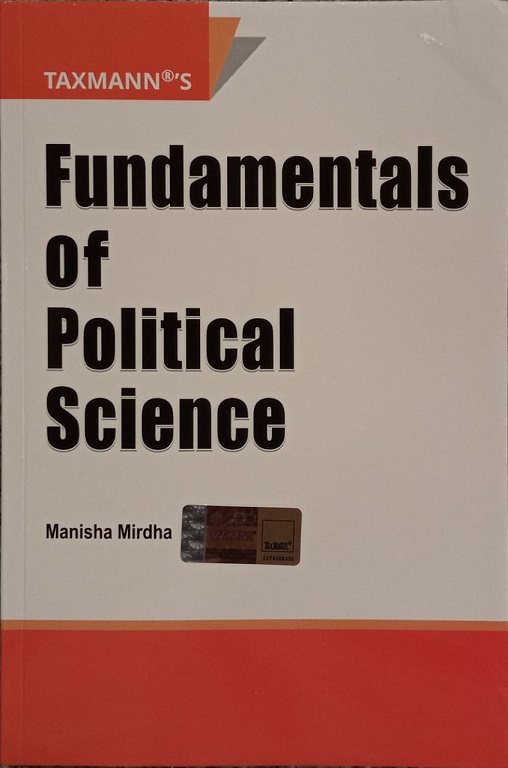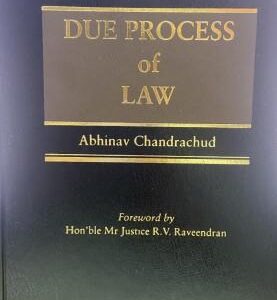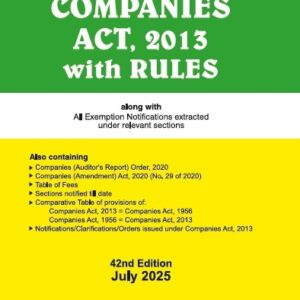Description
Fundamentals of Political Science is a full-spectrum, first-course text that connects core ideas of politics with institutions, behaviour, policy, and international order. It moves deliberately from the meaning, scope, and methods of political science to the state and key political concepts; then on to governance forms, elections and voting, international relations, and finally public administration and public policy. The result is a rigorous yet highly readable survey that balances India-specific structures with comparative and global developments, consistently linking theory to practice.
This book is intended for the following audience:
Undergraduate & Postgraduate Students of Political Science, Law, Public Policy, and allied social sciences who need a conceptually sound, exam-ready foundation that connects ideas with institutions, courts, and policy processes
Teachers & Researchers seeking a compact, structured map of the field with end-of-chapter summaries and curated references for extension reading
Civil Services & Competitive-exam Aspirants who require clear treatments of sovereignty, liberty, equality, justice, rule of law, electoral behaviour, IR theories, and administration/policy models in one place
Engaged Citizens & Professionals in governance/legal domains who want balanced India–world coverage and a practice-oriented approach
The Present Publication is the Latest Edition, authored by Dr Manisha Mirdha, with the following noteworthy features:
[Comprehensive Spectrum] Covers political thought, the State, governance, comparative politics, international relations, public administration, and public policy
[Balanced Pedagogy] Moves seamlessly from conceptual frameworks to practical illustrations
[Interdisciplinary Lens] Draws connections between politics, law, economics, psychology, sociology, and history
[Rigorous yet Accessible] Academic depth expressed in clear language for a wider readership
[Contemporary Relevance] Includes globalisation, democracy, disarmament, diplomacy, international organisations, and India’s foreign policy
[Exam & Research Friendly] Each chapter concludes with summaries and key takeaways for revision and critical reflection
[Utility Across Curricula] Suitable as a first textbook for BA/LLB/BA-LLB/MA starters, and a refresher for advanced or cross-disciplinary readers (law, management, public policy)
The coverage of the book is as follows:
Chapter 1 — Introduction to Political Science
Meaning, nature/scope, interfaces with other social sciences, traditional & modern approaches, political socialisation/culture/participation
Chapter 2 — The State
Elements (Montevideo criteria), functions, nation vs. state, state–society & associations, origin theories (divine right, force, contract, evolutionary), political obligation, and recognition
Chapter 3 — Political Concepts & Types of State
Sovereignty; liberty (negative/positive); equality (opportunity vs. outcome; feminist/Marxist views); justice (legal/substantive/global); rights & obligations; citizenship; rule of law
Chapter 4 — Governance
Typologies: parliamentary vs. presidential; federal vs. unitary; separation of powers; multiculturalism; challenges to modern government; e-governance and trends
Chapter 5 — Elections & Voting
Electoral behaviour, machinery, MCC, gender and elections, psephology and its limits, reforms, and judiciary–election interface
Chapter 6 — International Relations
State system & globalisation; IR theories (realism, liberalism, Marxism, constructivism, feminism, game theory); power (hard/soft/smart); foreign policy/diplomacy; disarmament; UN & emerging issues
Chapter 7 — Public Administration & Public Policy
Evolution (classical to New Public Administration), policy process & models (systems, institutional, incremental, rational choice, group/elitist, game-theoretic), and public institutions in India
The structure of the book is as follows:
Each chapter is broken into sub-sections with conceptual clarity, practical illustrations, and comparative insights
Key summaries, examples, and explanatory notes help reinforce concepts
Balanced treatment of Indian political structures and global political trends, making it equally relevant for national and international readers
Designed to spark inquiry while being exam-ready for academic curricula



![LAW OF ELECTIONS AND ELECTION PETITIONS [IN 3 VOLUMES]](https://hindlawhouse.com/wp-content/uploads/2022/07/10-288x300.jpg)


Reviews
There are no reviews yet.